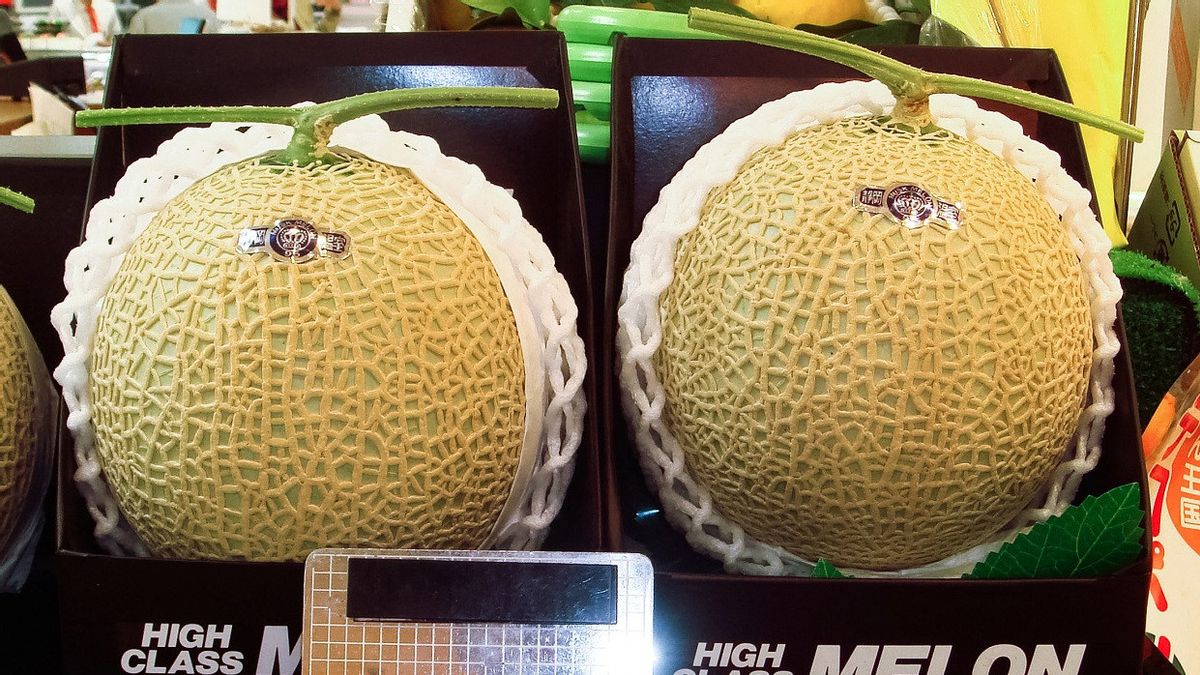JAKARTA - After more than a decade of experimenting, three Malaysian farmers said they were successful in finding the right nutritional ingredients and treatments to grow Japanese muskmelon to its full potential.
It is special, because Japanese muskmelon is known as one of the most expensive in the world, because of the sweetness and tenderness of the fruit flesh.
So special is this fruit, the farmers at the Malayasia Mono Premium Melon company regularly care for all the muskmelons. Not only watered and fertilized, there are other tricks used to maximize the growth of this fruit.
First, they use the practice of 'tama-fuki', regularly rubbing the melon with a soft cloth or gloves, which is believed to enhance the flavor of the melon.
Next, playing classical music through a loudspeaker at the place where these melons are grown is believed to stimulate the maximum growth of Japanese melon musk.
"Every Japanese melon you see on our farm is almost like a work of art," said Seh Cheng Siang, director and co-founder of Mono, at the company's estate in Malaysia's administrative capital Putrajaya.
Since the end of the 20th century, farmers in Japan have perfected the art of cultivating this type of melon, which is highly valued for its taste and round shape. This type of melon was sold in high-end stores as a luxury item.

To match the quality of this melon as in Japan, farmers have to contend with Malaysia's hot and humid tropical climate, away from the more temperate conditions in Japan.
"We have to make sure that nutrition, watering and fertilizing are done very consistently and precisely," Seh said, adding that they tried growing more than 10 varieties of Japanese melon before they found the right one.
After bringing melon seeds from Japan, Malaysian farmers traveled to Japanese plantations to learn cultivation methods that would be tried and imitated in Malaysia.
They also used trial and error to overcome challenges such as determining the optimal composition of the nutrients given to the melon plant.
Despite these constraints, the first 200 of Mono's choice of melons have sold out, the majority via online sales. The prices are around 168 ringgit each, or around Rp.591,430. This price is one-third of the price of the usual Japanese variety.
"It's very interesting to know that as Malaysians, we can actually grow Japanese quality melons in Malaysia," said Elaine Chow, a customer.
The English, Chinese, Japanese, Arabic, and French versions are automatically generated by the AI. So there may still be inaccuracies in translating, please always see Indonesian as our main language. (system supported by DigitalSiber.id)












